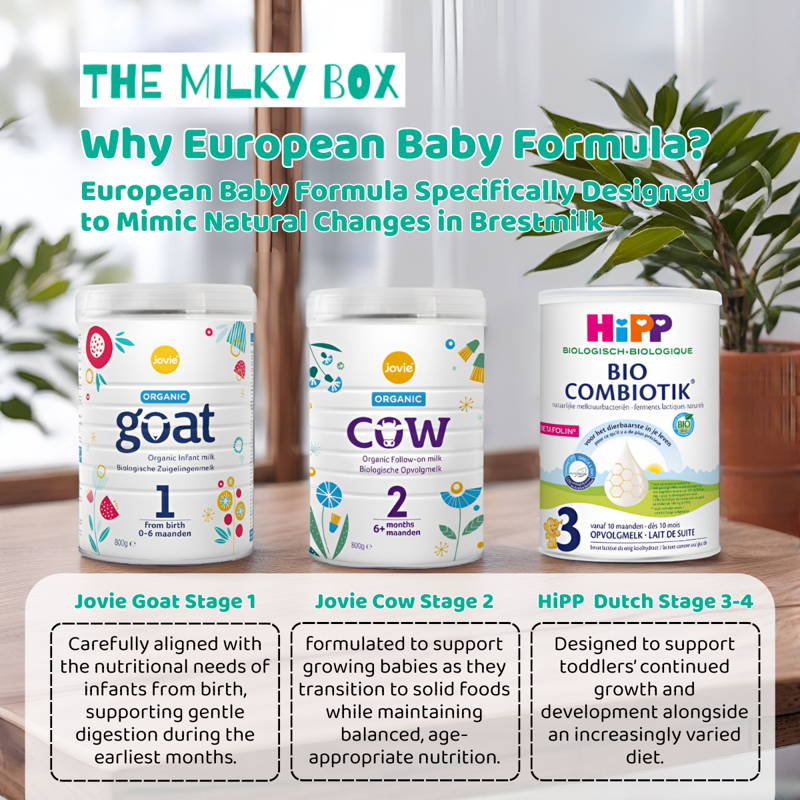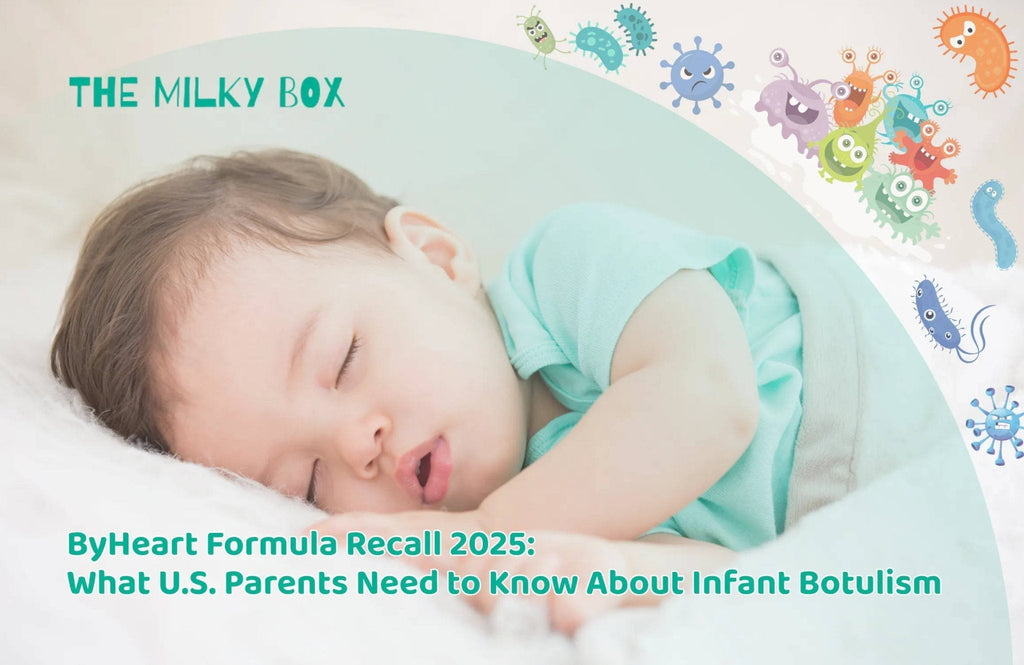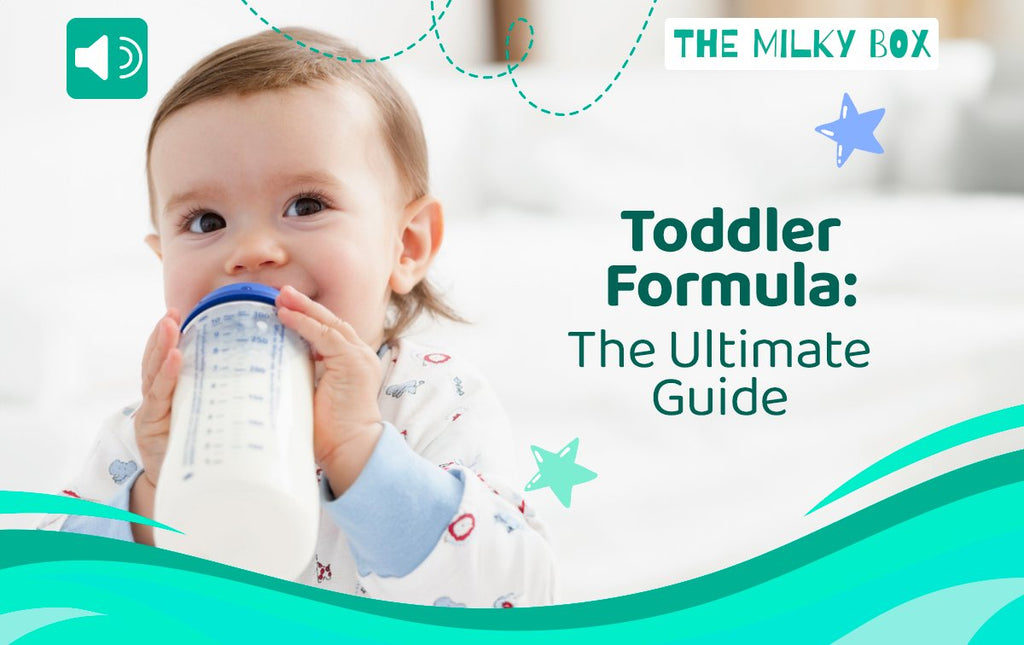Yes. Absolutely. Chaotic, unstable environments that keep on triggering your baby’s “fight or flight” response can make it difficult to engage executive function skills, making planning, execution, and resisting impulsive behavior difficult to control during adulthood.
Giving Your Child the Best Start: Early Childhood Development Strategies (2026 Update)
By: Dr. Maria Cerino - Updated April 9, 2024 - 10 Minute Read
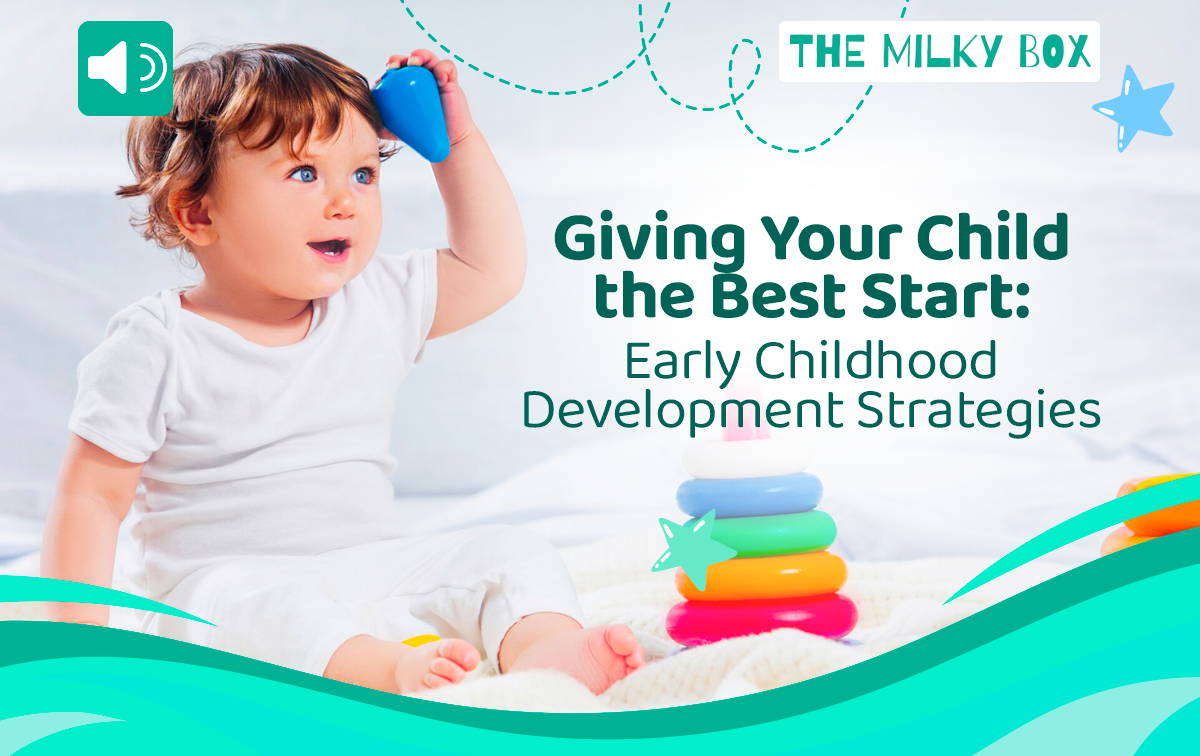
There is no denying that parenting is a full-time job. It requires attention, patience, and care, especially at the beginning. It has been said that for children, a great start can set the tone for the rest of their lives.
This rings true when it comes to providing them with a great environment for their development. A high-quality diet allows them to grow healthy, keeps them away from preventable diseases, appropriate toys, and learning tools stimulate their curiosity, and pushes them to become social from a very early age.
In this article, we will discuss some effective strategies for giving children a great start in life.
Table of Contents:
1. Isn't a Child's Health Predominantly Determined by Genetics?
2. What strategies can be used to promote growth and development in children?
3. Why Has the Protein Content in Infant Milk Decreased Over Time?
4. European Baby Formula Protein
5. How can they best support their child's optimal development?
6. Core Principles of Development Can Help Us Redesign Policy and Practice
7. Support responsive relationships for children and adults
Isn't a Child's Health Predominantly Determined by Genetics?
We’d like to start addressing the elephant in the room: genetics. While it has been widely proposed that genetic susceptibility is at fault for late development, chronic illness, and cancer, this isn’t entirely true.
Genetics are a significant contributor, but it has been found that gene-only-related diseases are just a tiny part of the big picture. They can determine certain conditions but aren’t big players when it comes to development.
Many describe a child’s first 1,000 days as the most critical time of their lives. They have been named “the brain’s window of opportunity”, and for good reason. It is the most rapid period of brain growth, and its period of highest plasticity is in the last trimester of pregnancy and the first two years of life.
Just in the first postnatal year alone, there is the rapid growth of the language processing areas as well as early development of the prefrontal cortex that will control "higher processing" such as attention, inhibition, and flexibility.
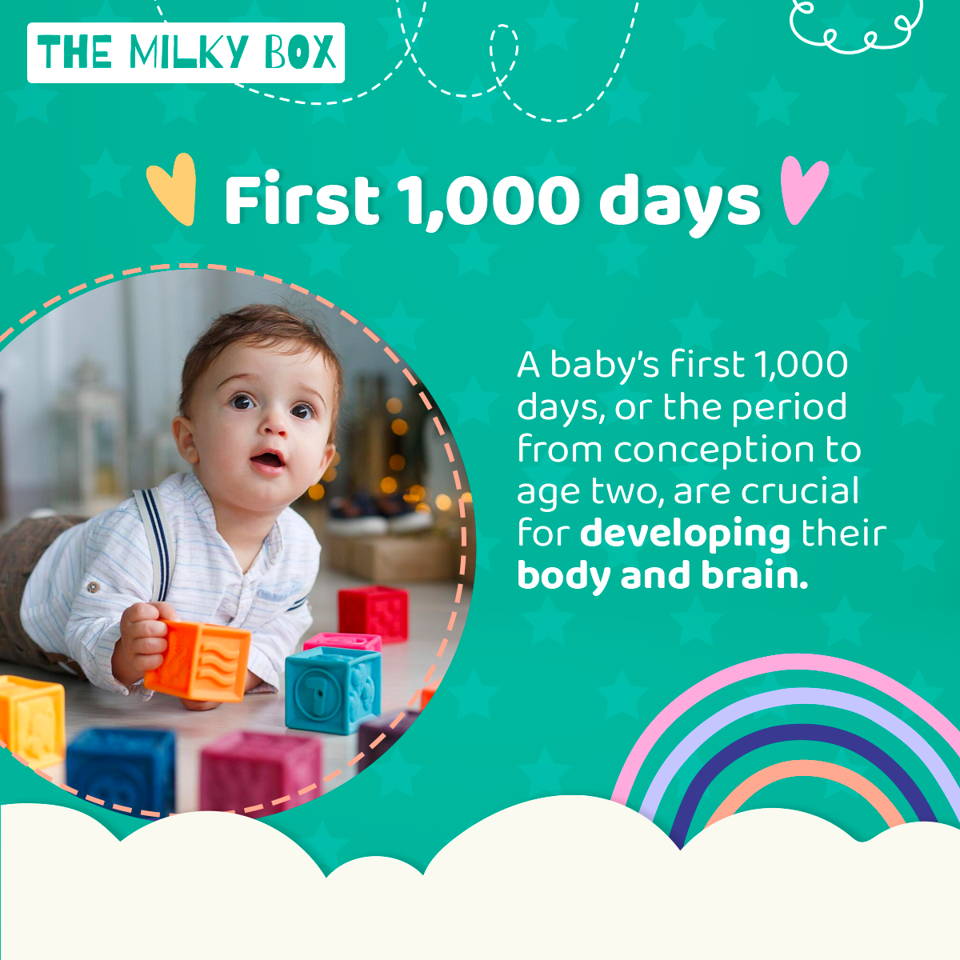
What strategies can be used to promote growth and development in children?
For children to achieve their full potential in growth and development, it is crucial to consider a range of essential factors. These factors may include, but are not limited to, nutrition, relationships, safety, and abilities.
Nutrition
The first, and probably the most important strategy we’d like to discuss is providing high-quality nutrition. This fuels their developing neurons for strong bones and healthy muscles that will ensure hours of play and satisfy curiosity.
What Nutrients Support Healthy Development?
Protein, polyunsaturated fatty acids, iron, zinc, copper iodine, choline, folate, and vitamins A, B6, and B12 are particularly critical. Their adequate consumption, starting from pregnancy, will have the appropriate effects on their brain plasticity.
Breast milk or organic formula will be your saviors during their first six months of life. Breast milk is naturally formulated to provide all of these, and a great selection of formulas is amazing to support their nutrition.
One of the most striking aspects of developmental and nutritional neuroscience is that a sustained nutrient deficiency can cause deviation from their expected development, leading to affected brain function in adulthood, long after repletion of the nutrient.
Besides choosing the right caloric content, parents must look for formulas containing no harmful additives, colorings, or sweeteners. European Organic Formula is widely recommended as it’s made up to the highest standards, has impeccable traceability of its ingredients, is made with high-quality oils, and is perfected to mimic breast milk almost perfectly.
Self and Relationships
During their first year, they will start learning about love and trust. One of the easiest ways to exemplify this is after accidents, “I know you’ll be there if I fall.” That’s where the importance of reacting with tenderness to these situations lies.
Family interactions will teach them about personal relationships and set their expectations for social interactions with other children, so showing them love and affection is crucial.
Safety and Stress
Providing your child with safe, recognizable environments holds more importance than one might think. A big part of their learning is observing, watching faces, and listening to sounds.
Conditioning their environment to be safe (using safety plug protectors, fences, and designated play zones) is perfect to avoid any accidents and mishaps.
Once they start crawling, allowing them to explore safely but offering help when they seem doubtful can make them feel safe and increase their confidence.
Abilities and Assessments
As your child enters the toddler stage, they will start experimenting with textures, objects, and materials like water, sand, or dirt. They’ll also grow fond of bright colors and fun shapes.
This is where parents play a huge role: they can provide sensory toys, wooden blocks, and music toys to stimulate their hearing and sense of musicality. During their appointments, pediatricians will run evaluations and tests to determine their development is on par with the skills expected for their age; this is where all that fun play mentioned above works as training.
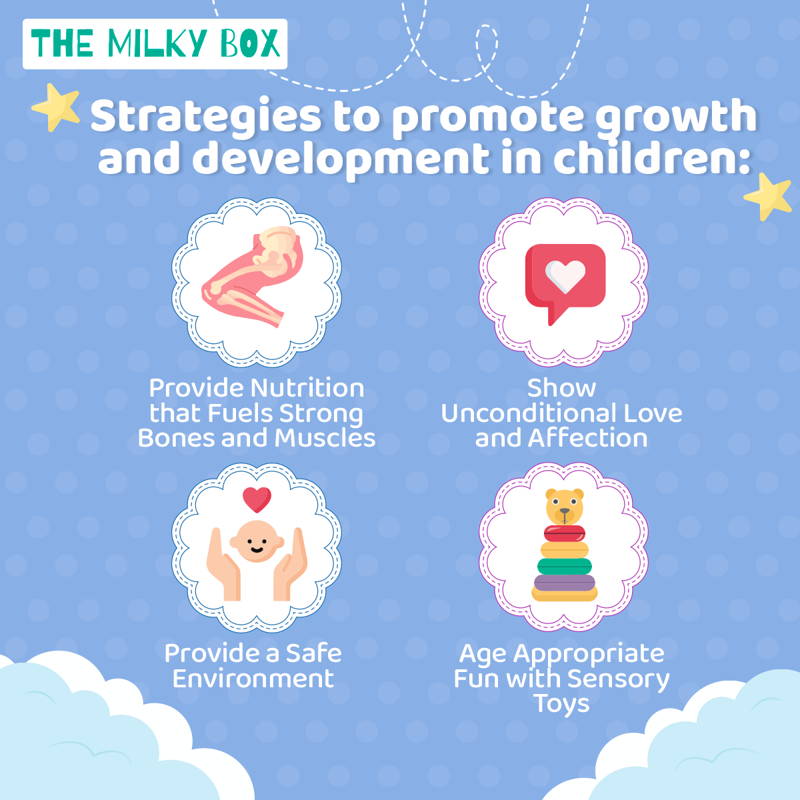
Why Has the Protein Content in Infant Milk Decreased Over Time?
Studies have indicated that infants fed formula with lower protein content in their first year of life tended to have a healthier weight at six compared to those who consumed milk with high protein content. This discovery led to many companies lowering the protein content in their formula as a preventative measure against obesity. This does not harm your baby because most of their nutritional needs come from fats and carbohydrates during their first year.
Baby Formulas Stages
European manufacturers and farmers recognize the significance of offering baby formula that closely resembles breast milk. This involves adjusting protein ratios throughout the first two years of a baby's life.
To achieve this, they have created formulas that imitate the natural progression of mother's milk, which is divided into different stages. This approach guarantees that the baby obtains the necessary nutrients at each stage, which are essential for their growth and development.
European Baby Formula Protein
The formula's composition and ingredients change as your little one grows. Their need for iron, calcium, and vitamin D increases with age. The protein composition also varies between stages.
Protein is made up of two components: casein and whey. Stage 1 formula contains 40% casein and 60% whey, which is similar to the protein found in breast milk. Stage 2 formula has a protein mix of 60% casein and 40% whey, making it more filling for babies even though they receive the same number of ounces per bottle.
This is important because babies become more active as they grow and require more nutrients to support their development. The Stage 3 formula has a protein mix of 80% casein and 20% whey, providing extra energy to support their physiological development as they grow.
Check Here for our European Baby Formula Comparison Chart for an indepth look at each formula and stage we carry.
How can they best support their child's optimal development?
Parents often ask this question sheepishly on all forums and blogs, as if they’re scared other people were born perfect parents. There is nothing to be ashamed of. On the contrary, it shows they’re off to a great start. They’re caring, loving, and worried about their child.
Core Principles of Development Can Help Us Redesign Policy and Practice
While it's in the parents’ hands to handle most childhood development strategies, government policies play a huge role in creating environments that make parenting easy. Three core principles align with children’s needs to develop core capabilities in their growth.
These should be considered every time lawmakers make decisions regarding the future of our kids.
Support responsive relationships for children and adults
Stability and communication are key. When an infant babbles, gestures, or cries, and an adult responds appropriately with eye contact, words, or a hug, neural connections are built and strengthened in the child’s brain. Supportive relationships help build a foundation for resilience across childhood and into adulthood.
Policies should encourage appropriate compensation to create less turnover in caregivers regarding the public system and establish policies that allow families to preserve their relationships.
1. Strengthen core skills for planning, adapting, and achieving goals: Children aren’t born with these skills but must acquire them during childhood. They are what set them up to make healthy decisions as adults. Policies, programs, and caregivers must create the opportunity to develop them by establishing routines and modeling appropriate social behavior.
2. Reduce sources of stress in the lives of children and families: Constant stress drains precious energy the brain needs both from parents and children, it keeps making executive function skills hard to reach for, it teaches them that rash behavior made in a “fight or flight” state is the only way of problem-solving.
These three are interconnected deeply, and ideally, there needs to be a balance between the three to mold a child’s development adequately, including providing parents with stress-free environments to raise their children. Lawmakers must strive to guide all possible resources to make their development as adequate as possible.
In Conclusion…
The early years of a child's life are crucial for their development. During this period, the brain forms essential neural connections that shape their behavior and lay the foundation for their future. As a parent or caregiver, you can provide guidance and support in three key areas: nutrition, behavior, and safety. If you care for these three areas, your child will be on the right path to a healthy and prosperous life.
At The Milky Box, we understand that parenting is a challenging task that requires focus, time, and dedication. That's why we offer support in the form of nutritious products suitable for physical and cognitive development. We provide breastfeeding complements, organic formula, and other alternatives designed to give your little one the nutrition they need to grow and thrive.
We also recognize that every family is unique, and there is no one-size-fits-all guide to parenting. However, we offer many resources to help educate and support all families. With the proper guidance and support, we are confident that your child will reach every milestone at the right time and grow up to be healthy and well-balanced.
Frequently Asked Questions
Is there really an effect of stress on children?
Do I need to keep an eye on my baby’s vision? How can I be sure they’re developing correctly?
One of the ways you can check at three months is by making sure they follow objects with their eyes; you’ll also notice they try to reach for things. At about six months of age, your baby needs to be evaluated by an eye doctor, this is part of their regular checkups. Their first eye exam is a great way to ensure they have the opportunity to develop the visual abilities they need.
How can I make sure my baby’s sleeping arrangements are safe?
There are many amazing resources covering this topic, but a good rule of thumb is following the ABCs of sleeping: your baby should sleep alone, on their back and in a crib. There are many different recommendations regarding baby sleep, but these are the safest, medically recommended measures.
Does the formula stage matter?
Your baby's needs will change as the months progress. The main differences between formula stages are the protein content and quantities to suit your baby’s caloric requirements better. Here’s a fantastic breakdown of all formula stages and their characteristics.
How can I communicate with my baby? Is it bad if I don’t talk to them?
Baby learns all about communication by watching others around them. It is the cornerstone of healthy relationships, and it shows them that it’s okay to share their joy, fear, shame, and other emotions.
A great way to “talk” to them when they still can’t form words is to respond to their sounds. Coos and smiles are also very helpful, as they learn to use and recognize facial expressions as communication. It’s okay to get silly around them, they love feeling included.
Disclaimer:
Please be aware that this information is based on general trends in babies, and it is not medical advice. Your doctor should be your first source of information and advice when considering any changes to your child’s formula and when choosing your child’s formula. Always consult your pediatrician before making any decisions about your child’s diet or if you notice any changes in your child.
Breastfeeding is the best nutrition for your baby because breast milk provides your child with all the essential nutrients they need for growth and development. Please consult your pediatrician if your child requires supplemental feeding.
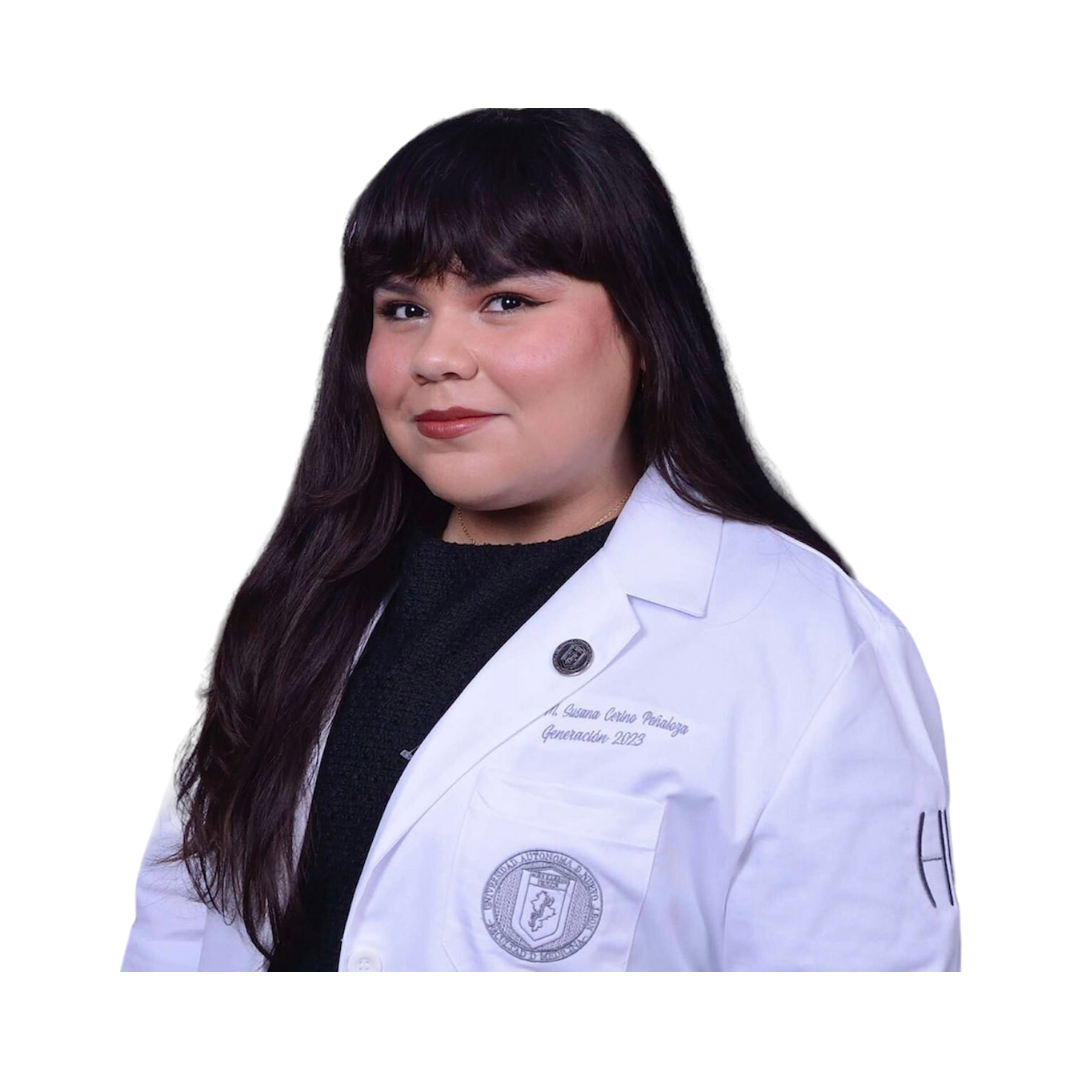
Dr. Maria Cerino is a medical doctor and a researcher from Mexico, her works being published in prestigious journals like the American Journal of Human Biology among others. As a medical writer, Dr. Cerino focuses on infant nutrition and healthy neurological development in infants and children. In her free time, she enjoys going on walks, watching indie films, and cooking at home.
Read Next:
Reviewed by Dr. Eric Wood, ND, MA

Dr. Wood is a licensed naturopathic doctor, with a doctorate degree from the Canadian College of Naturopathic Medicine in Toronto, Canada. He received his post-graduation certification in Mind Body Medicine at Harvard University.
With 15 years of experience, Dr. Wood is an Associate Professor of Holistic Nutrition at the American College of Health Sciences in Portland, Oregon. Dr. Wood is an educator, clinician, author, media figure, consultant, and owns his own holistic (naturopathic) medical practice in Ft. Lauderdale, Florida. Dr. Wood is currently researching and drafting books on cancer and pediatrics.
Outside of the medical profession, Dr. Wood loves singing with the Miami Lyric Opera and is an avid musician in South Florida. He also loves spending time with his wife and kids.
